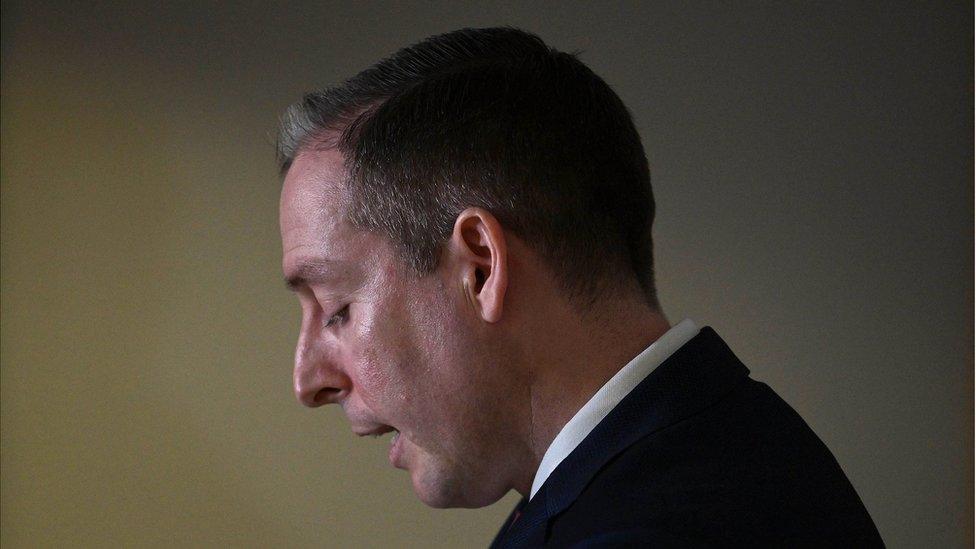Stormont faces £660m overspend warns Conor Murphy
- Published

Conor Murphy denied there had been a breakdown in financial controls
Northern Ireland's finance minister has warned that Stormont is facing a £660m overspend unless action is taken.
Any overspend would likely be deducted from next year's block grant.
Conor Murphy denied there had been a breakdown in financial controls, blaming the impact of inflation and the lack of a functioning executive.
Northern Ireland Secretary, Chris Heaton-Harris said the overspend was "unacceptable".
"The government fully expects the Northern Ireland departments to take responsibility and ensure their spending remains within budgets," a statement said.
The block grant is the money sent from the UK Treasury to fund public services.
Mr Heaton-Harris said that the reformation of the Northern Ireland Executive was "vital" to ensure that the budget is set to deliver "effective public services at this challenging time".
The executive has not been operating since February when the DUP withdrew from the first minister role in protest at the Northern Ireland Protocol.
In a written statement to assembly members, Conor Murphy said "a large proportion of the increased costs are due to energy costs and pay pressures resulting from the cost-of-living crisis".
He added that the position has been "exacerbated by the lack of an executive-agreed budget to help planning, constrain departmental spending and inform decision-making and prioritisation".
The minister explained that because a budget had not been passed before the executive collapsed, departments had been working with indicative "spending envelopes".
Official asked to identify savings
Departments were not constrained to these totals and were advised that they should not make decisions to stop services where there was a "reasonable expectation" that they would receive further funding later in the financial year once a budget was in place.
Mr Murphy said that in the absence of an executive, this had been the only possible approach to avoid services being unnecessarily affected when there remained significant funding which could not be allocated.
However, he said the latest forecasts provided by departments have shown that spending now reflects budget levels which "most departments could not have a reasonable expectation of receiving".
The largest overspends are being forecast for the departments of health and education. They face the additional costs of funding nationally-agreed pay deals.
Speaking to reporters, Mr Murphy would not be drawn on whether departments will now have to find £660m in cuts before the end of the financial year.
He said that within his own department, he has told his most senior official to identify possible savings.
There is around £300m which cannot allocated to be Stormont departments in the absence of an executive, however that is dwarfed by the projected gross overspend of £961m.
Related topics
- Published3 February 2022

- Published13 May 2022

- Published25 September 2022

- Published23 September 2022

- Published25 September 2022

- Published22 September 2022
